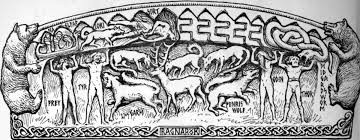There is no question that anthropogenic activity has profoundly damaged the vast interrelated web of ecological systems that maintain the conditions for life on this planet. Similarly there is an increasingly agreement among climate scientists that we are currently in the midst of a sixth geological extinction event that may cause the annihilation of up to 75 percent of species on earth, including humanity. The only question now is how do we conceptualise this fact and of course, how do we intend to address it. The current debates around the use of the term ‘anthropocene’ to describe the impact of human activity on the biosphere is an example of how environmentalists are trying to wrestle with this issue and also demonstrates how the critique of civilisation is a vital issue that has yet to be dealt with substantively by contemporary theorists. Without placing the phenomenon of civilisation at the core of our analysis of the environmental crisis, any conceptualisation will necessarily be insufficient.
In the most recent issue of the Monthly Review Ian Angus remarks that the term ‘anthropocene’ is currently enjoying a degree of exposure and attention rarely granted to scientific jargon. He writes

